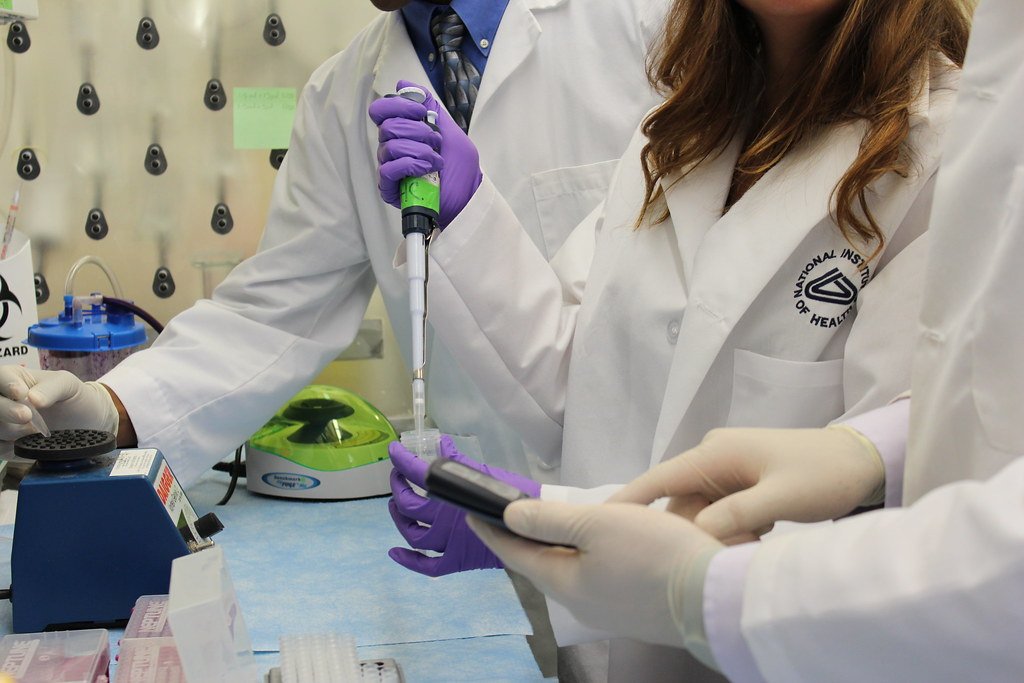Dancing delicately between science and hope, the remarkable potential of cannabidiol (CBD) has captivated the minds of researchers and dog owners alike. As we delve into a realm where ancient remedies blend with modern medicine, one question lingers in the air: can CBD hold the key to aiding our dear canine companions in their battle against cancer? The quest for answers leads us on a riveting journey through the vast expanse of scientific discoveries, paving the way towards a deeper understanding of CBD’s impact on canine cancer. So, let us embark on this enlightening expedition, where we unravel the secrets that research has unveiled about the enigmatic relationship between CBD and man’s best friend.
Table of Contents
- Understanding Canine Cancer: The Facts, Types, and Prevalence
- Exploring the Potential Benefits of CBD for Canine Cancer Treatment
- Examining the Research: CBD’s Effects on Tumor Growth and Metastasis
- Expert Recommendations: CBD Dosage and Administration for Canine Cancer
- Navigating the Future: Promising Areas of CBD Research for Canine Cancer
- Q&A
- Concluding Remarks

Understanding Canine Cancer: The Facts, Types, and Prevalence
As pet owners, it’s important to be well-informed about canine cancer to ensure the well-being of our furry companions. Cancer is a complex and often devastating disease that can affect dogs of all breeds, ages, and sizes. By understanding the facts, types, and prevalence of canine cancer, we can take proactive steps to detect and treat it early, providing the best possible care for our beloved four-legged friends.
Facts:
- Canine cancer occurs when abnormal cells in a dog’s body start to grow and divide uncontrollably.
- It can affect various parts of a dog’s body, including the skin, bones, organs, and blood.
- Common symptoms of canine cancer may include lumps or bumps, sudden weight loss, changes in appetite, lethargy, and abnormal bleeding.
- Early detection plays a crucial role in improving the chances of successful treatment and long-term survival.
Types:
- Melanoma: A type of skin cancer that typically appears as dark-colored, irregularly shaped growths on a dog’s skin.
- Lymphoma: Cancer of the lymphatic system, which can cause swelling of lymph nodes, lethargy, and loss of appetite.
- Osteosarcoma: A bone cancer that often affects larger dog breeds and commonly occurs in the limbs.
- Hemangiosarcoma: A highly aggressive cancer that affects blood vessels, often leading to internal bleeding and organ damage.
Prevalence:
According to veterinary research, approximately 1 in 3 dogs will develop cancer during their lifetime. While the prevalence of canine cancer varies depending on factors such as breed, genetics, and environmental exposures, it is a significant health concern for our furry companions. By staying proactive, maintaining regular check-ups with our veterinarians, and being aware of potential signs, we can ensure that our dogs receive the best possible care and support in their fight against cancer.

Exploring the Potential Benefits of CBD for Canine Cancer Treatment
The use of CBD (cannabidiol) for canine cancer treatment has gained significant attention in recent years. While research is still ongoing, preliminary studies suggest that CBD may have potential benefits in supporting dogs with cancer.
Here are some potential benefits of CBD for canine cancer treatment:
- Pain management: CBD may help alleviate cancer-related pain in dogs, promoting their overall comfort and well-being.
- Inflammation reduction: CBD is believed to have anti-inflammatory properties, which could aid in reducing inflammation caused by cancer or its treatments.
- Stress and anxiety relief: Canine cancer can be a distressing experience for both dogs and their owners. CBD has been known to have calming effects, potentially reducing stress and anxiety levels in dogs.
- Improved appetite: One of the common side effects of cancer in dogs is a loss of appetite. CBD may help stimulate the dog’s appetite and promote healthy eating habits, essential for their recovery.
- Enhanced immune function: Some studies suggest that CBD might have immunomodulatory effects, potentially improving the immune response in dogs battling cancer.
It’s important to note that CBD should not be used as a standalone treatment for canine cancer but rather as a complementary therapy in conjunction with veterinary guidance. Each dog’s condition is unique, and consulting a veterinarian is crucial to ensure proper dosage and safety.
While the potential benefits of CBD for canine cancer treatment are promising, further research and clinical trials are needed to fully understand its efficacy and safety. However, pet owners interested in exploring CBD as an additional supportive measure should consult with their veterinarian to make informed decisions regarding their dog’s health.

Examining the Research: CBD’s Effects on Tumor Growth and Metastasis
The Promise Unveiled: Unraveling CBD’s Effects on Tumor Growth and Metastasis
Embarking on a journey into the realm of scientific inquiry, researchers around the globe have joined forces to unlock the potential of CBD in combatting tumor growth and metastasis. Their efforts seek to shed light on this enigmatic plant compound, providing a glimmer of hope for those affected by these relentless diseases. Through meticulous investigations and captivating experiments, valuable insights emerge, paving the way for innovative approaches to cancer treatment.
Boldly defying conventional limitations, pioneering studies have begun to unravel the true power of CBD. Evidence suggests that this potent cannabinoid exhibits anti-tumor properties, disrupting the growth of cancer cells and thwarting metastasis—the disheartening spread of malignancies throughout the body.
Leaning on mounting evidence, researchers have honed in on several key findings:
- Inducing apoptosis: CBD has been observed to stimulate programmed cell death, a natural process that prevents the survival of abnormal cells.
- Halting angiogenesis: By impeding the formation of new blood vessels that nurture tumors, CBD may strangle their lifeline, stunting their growth.
- Reducing inflammation: Chronic inflammation triggers the release of pro-tumor molecules. Fascinatingly, CBD demonstrates anti-inflammatory properties, potentially blocking the signals that fuel tumor progression.
- Inhibiting metastasis: Preliminary studies suggest that CBD may hamper the migratory abilities of cancer cells, deterring their invasive spread to other organs.
While these findings inspire optimism, it’s important to acknowledge that research in this field is still in its infancy. Existing studies have predominantly focused on laboratory models and require extensive validation through clinical trials. Nonetheless, these exciting revelations kindle a glimmer of hope, emboldening scientists to delve deeper into the enigmatic realm of CBD’s therapeutic potential.
Expert Recommendations: CBD Dosage and Administration for Canine Cancer
When it comes to utilizing CBD for managing canine cancer, it’s crucial to follow expert advice on the dosage and administration. Proper usage ensures maximum efficacy and minimal side effects for your beloved furry friend.
The Right Dosage:
Every dog is unique, and finding the optimal CBD dosage for their cancer treatment requires careful consideration. Here are some expert recommendations:
- Start Low: Begin with a low CBD dosage and gradually increase it over time based on your dog’s response. This helps determine the ideal therapeutic range.
- Weight-Based Approach: Many experts suggest using a weight-based dosage chart provided by reputable CBD manufacturers. This allows for a more accurate calculation and reduces the risk of over or under-dosing.
- Trial and Observation: Keep a close eye on your canine companion’s response and adjust the dosage accordingly. Monitoring their behavior, appetite, and any changes in their condition helps fine-tune the CBD intake.
Administration Tips:
Administering CBD to dogs requires careful attention to ensure proper absorption and effectiveness. Consider these tips from experts:
- Sublingual or Topical: CBD tinctures are commonly administered under the tongue for direct absorption into the bloodstream. Alternatively, topical creams and balms can be applied directly to affected areas for localized relief.
- Consistency is Key: Maintain a regular dosing schedule to establish a consistent level of CBD in your dog’s system. This provides a stable therapeutic effect against cancer symptoms and helps manage discomfort.
- Patient Cooperation: Train your dog to cooperate during CBD administration to minimize stress and ensure they receive the full dosage. Calm and positive reinforcement can make the process easier and stress-free for both of you.
Navigating the Future: Promising Areas of CBD Research for Canine Cancer
As the field of pet healthcare continues to evolve, one promising area of research is the use of CBD in treating canine cancer. Scientists and veterinarians are currently exploring the potential benefits of cannabidiol, a compound derived from the cannabis plant, in alleviating symptoms and slowing down the progression of cancer in dogs.
Promising avenues of CBD research for canine cancer include:
- Evaluating CBD’s anti-tumor properties: Preliminary studies suggest that CBD may possess anti-tumor effects, helping to inhibit the growth and spread of cancerous cells. Researchers are investigating whether CBD can be used in conjunction with traditional cancer treatments to enhance their effectiveness.
- Managing cancer-related symptoms: CBD is known for its potential to alleviate pain, reduce inflammation, and ease anxiety, which are common symptoms experienced by dogs with cancer. Ongoing research aims to uncover the specific mechanisms by which CBD interacts with the canine body, providing a better understanding of how it can be integrated into comprehensive cancer care.
- Exploring potential side effects and safety: Like any medication, CBD carries the possibility of side effects, although they appear to be minimal in pets. Studies are being conducted to establish optimal dosages and potential risks associated with CBD use in dogs, ensuring a safe and effective treatment option for canine cancer.
While more research is needed to fully comprehend the benefits and limitations of CBD therapy for canine cancer, these exciting findings offer hope for improved management of this devastating disease. As scientists continue to navigate this uncharted territory, the potential of CBD in enhancing the lives of our beloved four-legged friends becomes an increasingly promising reality.
Q&A
What is CBD and how does it work?
CBD, short for cannabidiol, is a compound found in the cannabis plant. It interacts with the endocannabinoid system in both humans and dogs, which helps regulate various bodily functions such as pain, inflammation, and immune response.
Is there any scientific evidence to support the use of CBD for canine cancer?
While research on CBD and canine cancer is still limited, some studies suggest that CBD may help alleviate cancer-related symptoms, such as pain and nausea. However, further scientific investigation is needed to fully understand its potential benefits and effectiveness.
Can CBD cure canine cancer?
Currently, there is no scientific evidence to suggest that CBD can cure canine cancer. It should not be used as a replacement for traditional cancer treatments recommended by veterinarians. However, CBD may help manage certain symptoms and improve the overall quality of life for dogs undergoing cancer treatment.
Are there any potential side effects of CBD for dogs with cancer?
While CBD is generally considered safe for dogs, some potential side effects may include drowsiness, dry mouth, and gastrointestinal upset. It’s crucial to consult with a veterinarian before introducing CBD to your dog’s cancer treatment plan, as they can provide guidance on proper dosage and potential interactions with other medications.
Should I give my dog CBD without consulting a veterinarian?
No, it is not recommended to give your dog CBD without consulting a veterinarian first. Every dog is unique and their health conditions vary, so it’s important to seek professional advice to ensure the safe and appropriate use of CBD as part of their cancer treatment plan.
Are there any legal concerns regarding CBD usage in dogs?
Regulations surrounding CBD usage in animals may vary by country and state. In some places, CBD may only be legally prescribed by a veterinarian, while in others, it may be available over the counter. It is crucial to be aware of the legal regulations in your specific area before administering CBD to your dog.
Concluding Remarks
As we delve deeper into the realm of CBD and canine cancer, one thing becomes abundantly clear: the potential benefits are vast and intriguing. While research is still in its infancy, the studies conducted thus far provide a glimmer of hope for our furry companions who battle this devastating disease.
From improved quality of life and increased appetite to pain relief and potential tumor shrinkage, CBD’s positive impact on dogs with cancer cannot be understated. The scientific community is abuzz with excitement as findings hint at its ability to augment conventional treatments, potentially leading to better outcomes for our cherished four-legged friends.
However, it is vital to acknowledge that CBD is not a cure-all, nor should it be viewed as a standalone treatment for canine cancer. As we await further scientific exploration, it is crucial to consult with veterinarians who specialize in oncology, ensuring responsible and informed decisions for our beloved pets.
Amidst the uncertainty, one thing remains certain—CBD’s potential is monumental. With each groundbreaking study, the curtain is lifted, allowing us a glimpse into the promising world of CBD and its interaction with canine cancer. The road ahead may be complex, filled with more questions than answers, but we must press on, fueled by the hope that one day, we might witness the breakthrough that transforms the lives of our furry companions.
So let us come together, researchers, veterinarians, and pet lovers alike, to continue unraveling the mysteries that CBD holds for canines battling cancer. Through collaboration, dedication, and unwavering determination, we embark on a journey that intertwines science and compassion, illuminating a path towards a brighter future for our beloved furry companions.
As an affiliate, my content may feature links to products I personally use and recommend. By taking action, like subscribing or making a purchase, you’ll be supporting my work and fueling my taco cravings at the same time. Win-win, right?
Want to read more? Check out our Affiliate Disclosure page.